While in Indonesia for a series of meetings, I had the chance to do my very first site visit for Mifos.
Our host, the Koperasi Kasih Indonesia, welcomed us at their head office in northern Jakarta nearby the container port.
We spent some time with the team to talk about the Koperasi and the procedures and tools they are currently using. Their goal to grow comes with a need to scale their business procedures and make them more efficient, which leads to better support by a back office solution, and the need to eliminate most of the paper intensive work in the field and the inefficient manual data transfer in the office. By then just words to me.
KKI invited us to take part in a group meeting held at a member’s house … so we hopped on a scooter and off we went.
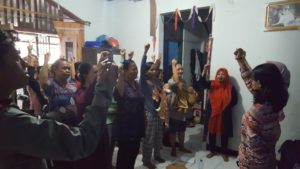 As we arrived, the group already has gathered and was waiting for us. You could feel happiness and tension all around as the purpose of the meeting was to start a new cycle and disburse loans. The meeting started with a prayer and the KKI pledge shouted by all attendees (including us) in unison.
As we arrived, the group already has gathered and was waiting for us. You could feel happiness and tension all around as the purpose of the meeting was to start a new cycle and disburse loans. The meeting started with a prayer and the KKI pledge shouted by all attendees (including us) in unison.
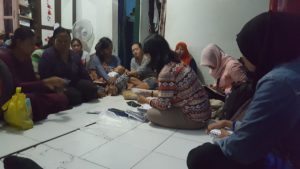 Then some rustling noise appeared … paper magically came out of nowhere. For me it was hard to believe: attendance lists, application forms (of every member), ID card copies, disbursement sheets, and agreement forms. Given that the meeting was a joint meeting of two groups, there were over 50! pages of paper, at least.
Then some rustling noise appeared … paper magically came out of nowhere. For me it was hard to believe: attendance lists, application forms (of every member), ID card copies, disbursement sheets, and agreement forms. Given that the meeting was a joint meeting of two groups, there were over 50! pages of paper, at least.
The formal meeting started with an attendance check, followed by an educational training session. After the training, four members were tested to verify that they have understood the purpose of the Koperasi and the meaning of group liability and their own responsibility for the group and all other members.
One group welcomed a new member; she recited the policies aloud, and showed her “Fra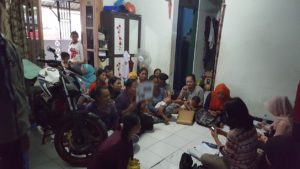 me of Dreams” to all. What is a “Frame of Dream” you may ask. It is a blank surface that every member needs to fill with the goals she wants to reach, e.g. education for her children, better housing, or growth of her small enterprise.
me of Dreams” to all. What is a “Frame of Dream” you may ask. It is a blank surface that every member needs to fill with the goals she wants to reach, e.g. education for her children, better housing, or growth of her small enterprise.
This frame is shown to every member of the group because they are now all responsible for these goals (shared liability taken to the next level). The frame serves two purposes, (1) a self-motivation for the member, and (2) an agreement that everybody cares about the dream of all other group members.
Suddenly action entered the room and all attendees started to move around and lined up: disbursement time was here. Every member, one by 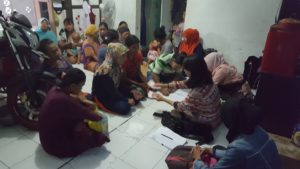 one, was sitting in front of KKI’s employee, the loan amount was stated out loud, and then cash was counted and handed over. Every member then signed off the payment in the disbursement sheet and the agreement form.
one, was sitting in front of KKI’s employee, the loan amount was stated out loud, and then cash was counted and handed over. Every member then signed off the payment in the disbursement sheet and the agreement form.
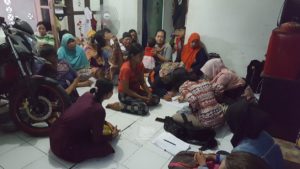 The closing of the meeting included a prayer and the KKI pledge again.
The closing of the meeting included a prayer and the KKI pledge again.
My take away after that experience is two-fold. There are two ingredients that make this kind of business work, (1) a social component where everybody is responsible for each other and (2) and the technology that allows a broader outreach by easing the pain of handling paper.
Cash, even if we Westerners are moving away from it, still has some value. It is something you can feel, which is more than simply the money itself. There is some hidden message in cash that could not be erased by electronic money, a transition needs to be made to distinguish between money and expectations/feelings.
As a techie, my first reaction was that we can solve all this with decent technology. After seeing what really happens, I realized that technology can not replace a group meeting, rather technology needs to assist the social bonding by providing a solution that allows the employee to focus more on the group, instead of handling large amounts of paper, and other mundane details and error checking.
Technology needs to enhance the social experience, not replace it.
-Markus Geiss, Chief Architect

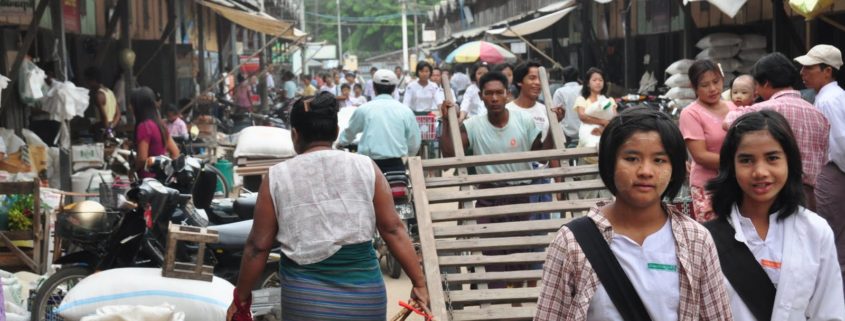
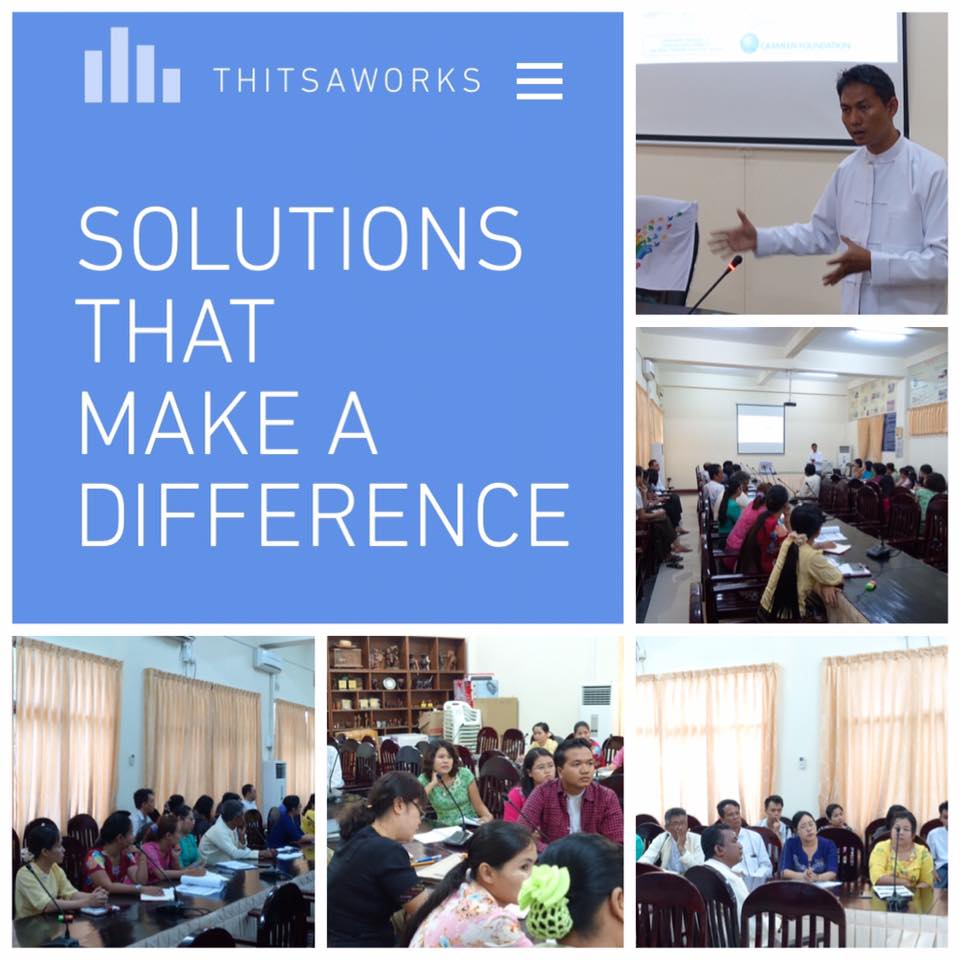
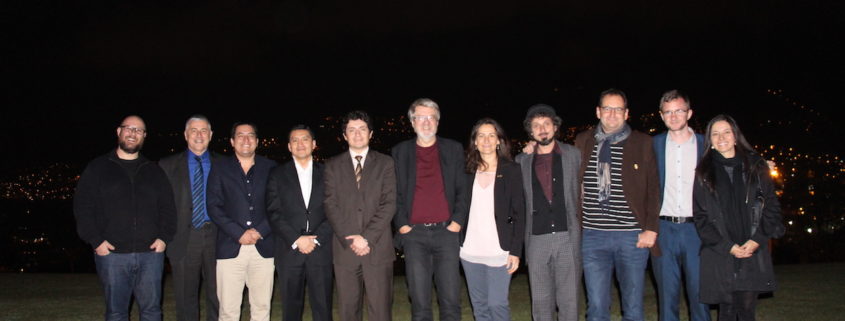
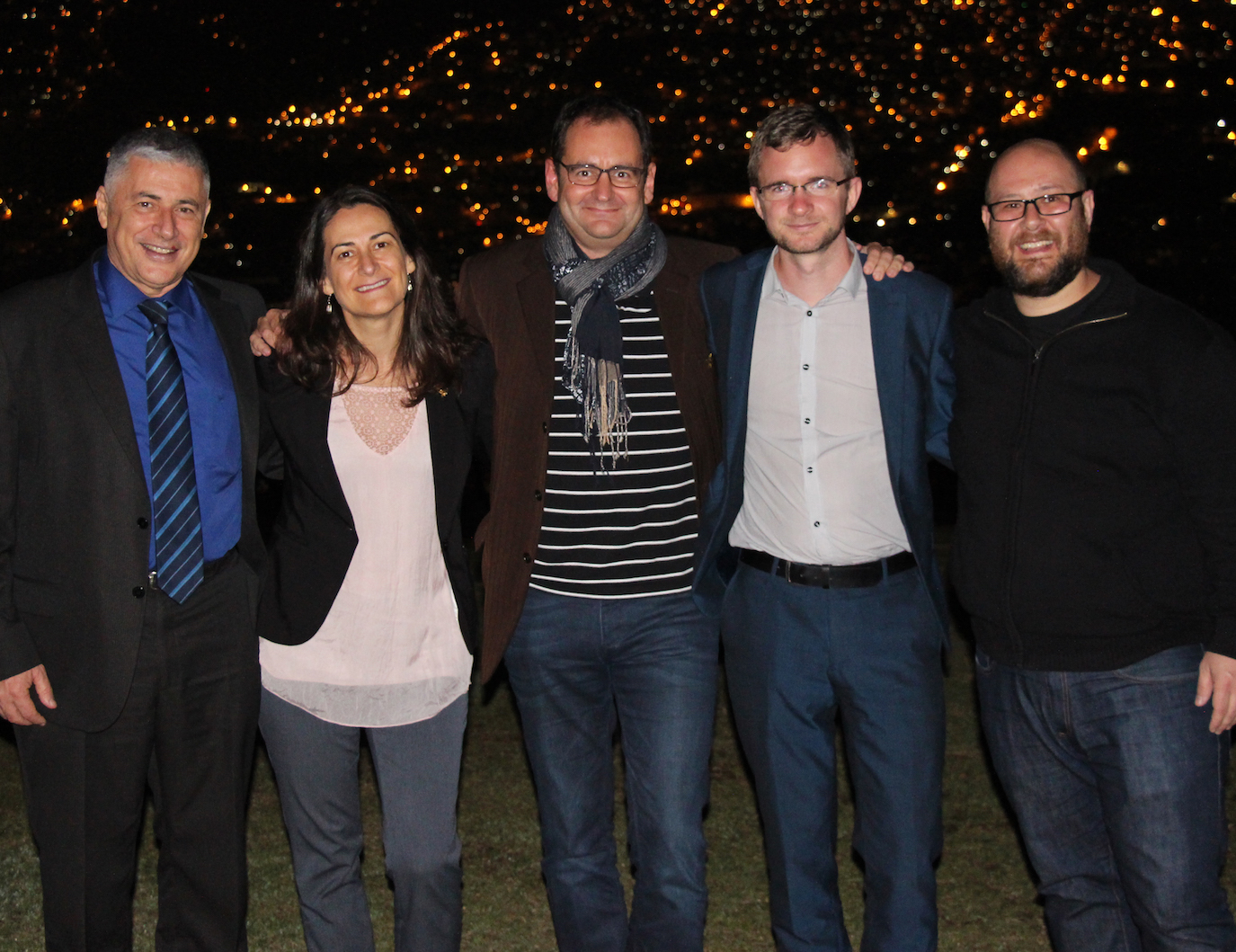
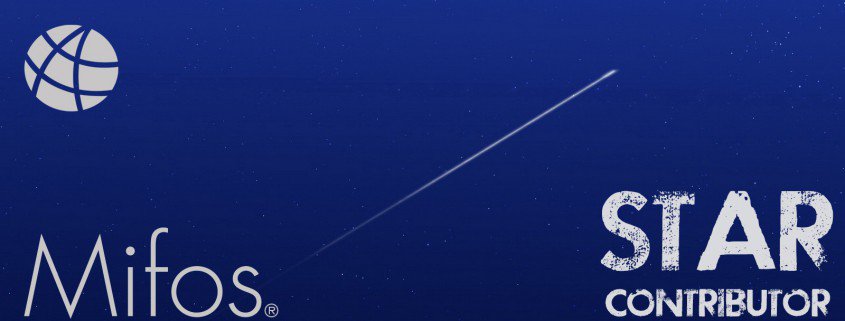
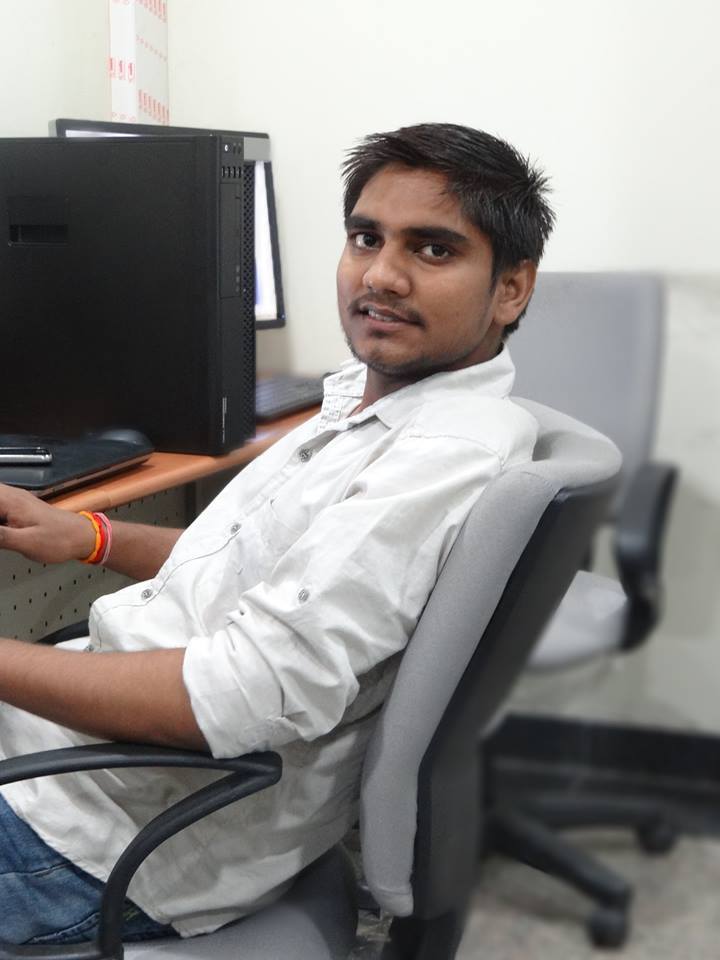
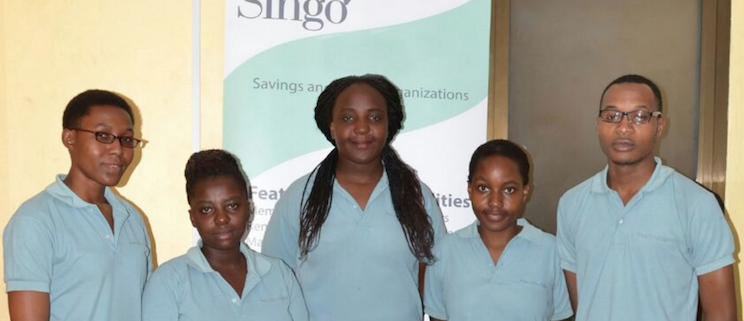
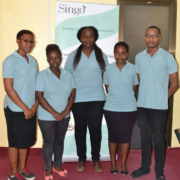
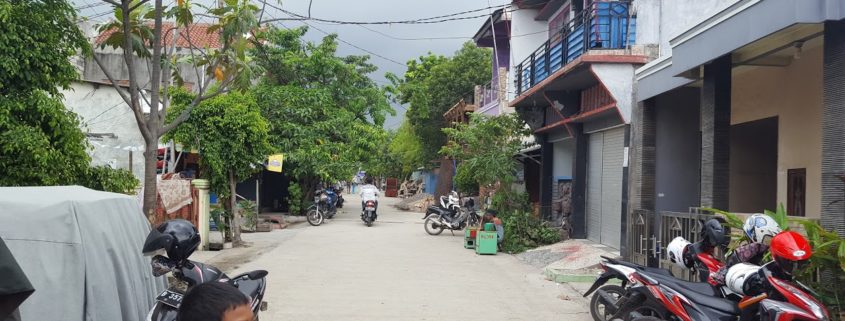
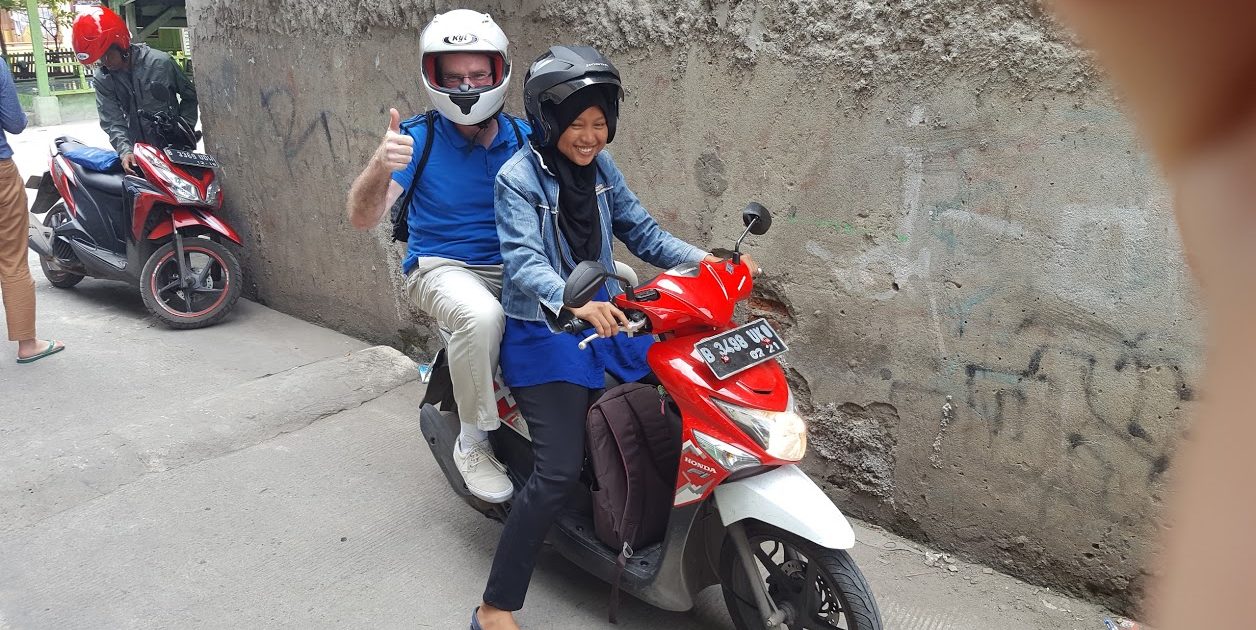
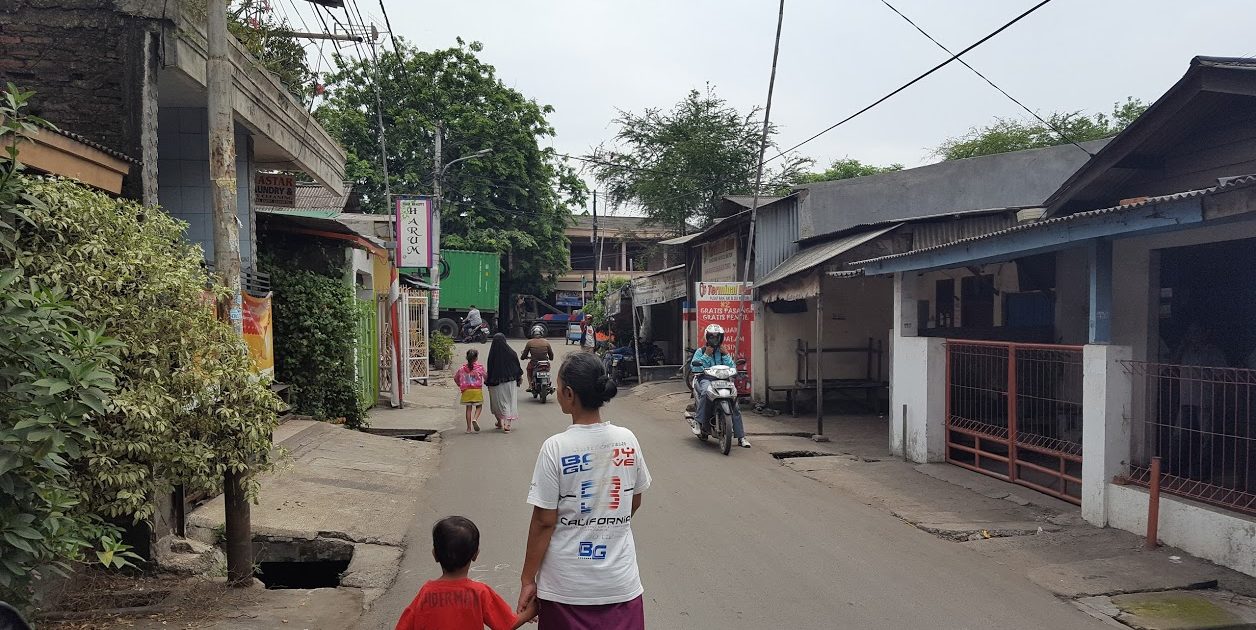
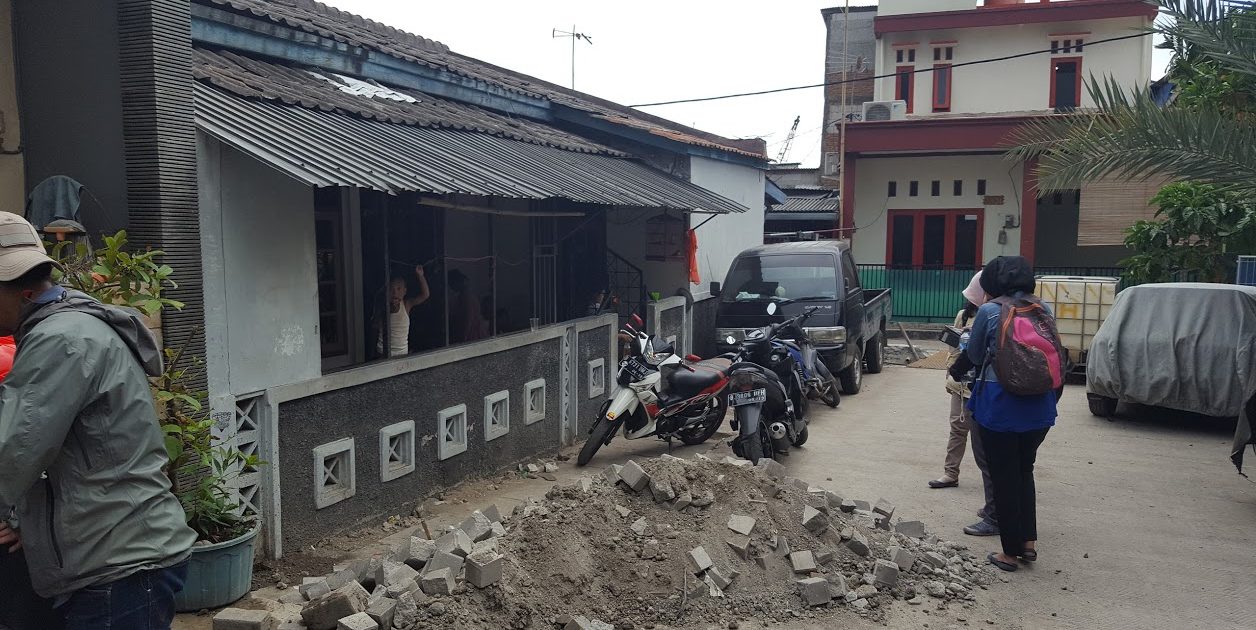
 As we arrived, the group already has gathered and was waiting for us. You could feel happiness and tension all around as the purpose of the meeting was to start a new cycle and disburse loans. The meeting started with a prayer and the KKI pledge shouted by all attendees (including us) in unison.
As we arrived, the group already has gathered and was waiting for us. You could feel happiness and tension all around as the purpose of the meeting was to start a new cycle and disburse loans. The meeting started with a prayer and the KKI pledge shouted by all attendees (including us) in unison. Then some rustling noise appeared … paper magically came out of nowhere. For me it was hard to believe: attendance lists, application forms (of every member), ID card copies, disbursement sheets, and agreement forms. Given that the meeting was a joint meeting of two groups, there were over 50! pages of paper, at least.
Then some rustling noise appeared … paper magically came out of nowhere. For me it was hard to believe: attendance lists, application forms (of every member), ID card copies, disbursement sheets, and agreement forms. Given that the meeting was a joint meeting of two groups, there were over 50! pages of paper, at least. me of Dreams” to all. What is a “Frame of Dream” you may ask. It is a blank surface that every member needs to fill with the goals she wants to reach, e.g. education for her children, better housing, or growth of her small enterprise.
me of Dreams” to all. What is a “Frame of Dream” you may ask. It is a blank surface that every member needs to fill with the goals she wants to reach, e.g. education for her children, better housing, or growth of her small enterprise. one, was sitting in front of KKI’s employee, the loan amount was stated out loud, and then cash was counted and handed over. Every member then signed off the payment in the disbursement sheet and the agreement form.
one, was sitting in front of KKI’s employee, the loan amount was stated out loud, and then cash was counted and handed over. Every member then signed off the payment in the disbursement sheet and the agreement form. The closing of the meeting included a prayer and the KKI pledge again.
The closing of the meeting included a prayer and the KKI pledge again.